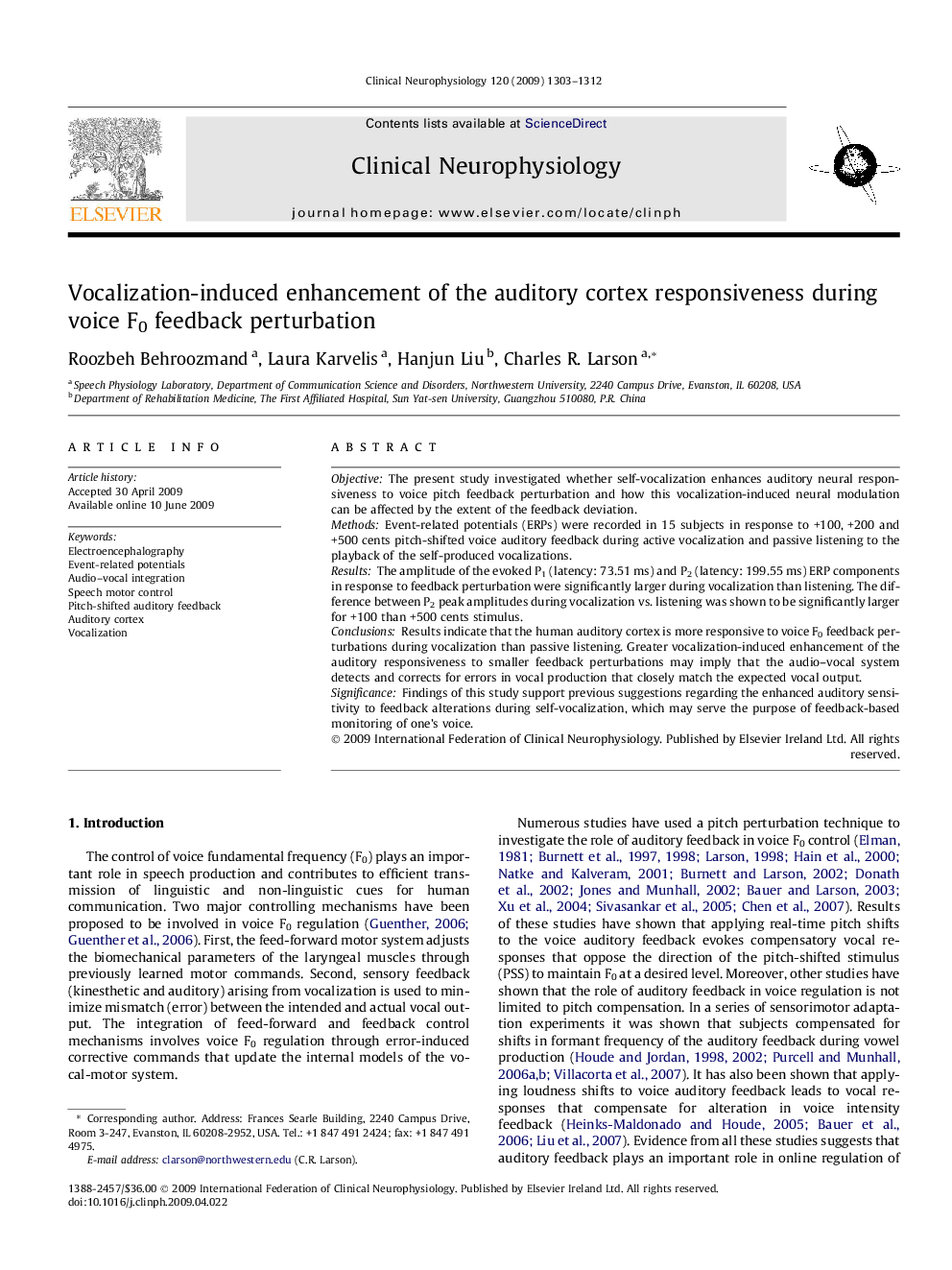| Article ID | Journal | Published Year | Pages | File Type |
|---|---|---|---|---|
| 3046562 | Clinical Neurophysiology | 2009 | 10 Pages |
ObjectiveThe present study investigated whether self-vocalization enhances auditory neural responsiveness to voice pitch feedback perturbation and how this vocalization-induced neural modulation can be affected by the extent of the feedback deviation.MethodsEvent-related potentials (ERPs) were recorded in 15 subjects in response to +100, +200 and +500 cents pitch-shifted voice auditory feedback during active vocalization and passive listening to the playback of the self-produced vocalizations.ResultsThe amplitude of the evoked P1 (latency: 73.51 ms) and P2 (latency: 199.55 ms) ERP components in response to feedback perturbation were significantly larger during vocalization than listening. The difference between P2 peak amplitudes during vocalization vs. listening was shown to be significantly larger for +100 than +500 cents stimulus.ConclusionsResults indicate that the human auditory cortex is more responsive to voice F0 feedback perturbations during vocalization than passive listening. Greater vocalization-induced enhancement of the auditory responsiveness to smaller feedback perturbations may imply that the audio–vocal system detects and corrects for errors in vocal production that closely match the expected vocal output.SignificanceFindings of this study support previous suggestions regarding the enhanced auditory sensitivity to feedback alterations during self-vocalization, which may serve the purpose of feedback-based monitoring of one’s voice.
